Following Brexit, France wants to proclaim itself the new pan-European nuclear guarantor. During a speech at L’École de guerre in Paris, Macron announced that he had ambitious plans to put French nuclear weapons at the heart of EU defense policy.
By declaring the French doctrine of nuclear deterrence in the current geopolitical environment, Macron clearly outlined the boundaries of what France is ready to share with other countries after 60 years of nuclear development.
After the withdrawal of the United Kingdom from the EU, France remains the only country in the bloc that possesses nuclear weapons, which presumably gives Paris a good chance to take on the role of European military leader… but does it actually?
Macron’s thesis
In his speech, Maсron compared himself to Charles de Gaulle, calling for a European dialogue on defence and deterrence based on French nuclear force, inviting other EU states to participate.
– There are several crucial factors which have inspired global change: 1) US / Chinese competition, 2) dissatisfaction with Europe’s continued cooperation with the US, 3) the expansion of geopolitical ‘grey zones’ (where the border between competition and confrontation is blurred).
– Military paradigm shift: the current situation of nuclear multipolarity can in no way be compared to the main approach of the Cold War. The deterrent-based power balances have thus become unstable.
– A shift in the political and legal paradigm: a weakening of legal factors in favor of relationships of power.
– Technology paradigm shifts: 5G, cloud storage, operating systems, artificial intelligence have changed the game considerably. The role of commercial trade has become increasingly subject to broader strategic meaning.
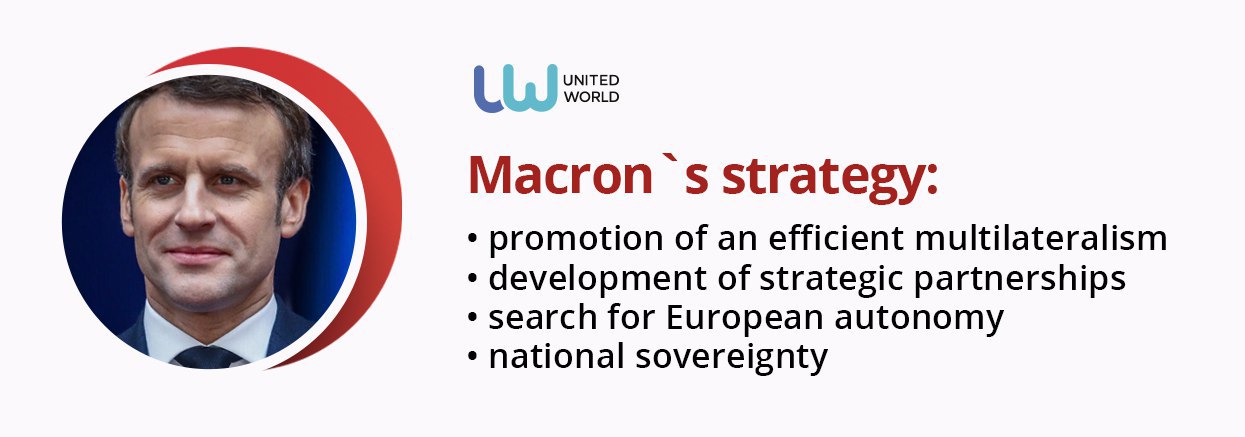
– At a time when we must prepare ourselves for global challenges, we are facing an accelerated disintegration of our international legal order. Since the early 2000s, cracks have started to appear in the security architecture of Europe. The 2019 cancellation of the Intermediate-Range Nuclear Forces Treaty was a prime symbol of this disintegration.
– The fight against terrorism remains France’s top priority. Despite the destruction of ISIS’ central area of power, radical jihadists continue to look for weaknesses to exploit in our societies.
– Overhauling the world order to further peace is the course we must follow, and France and Europe have a historic role to play.
– There are four pillars to the new strategy: promotion of an efficient multilateralism, development of strategic partnerships, the search for European autonomy and national sovereignty.
– Europe’s aims are 1 ) the promotion of a renewed international arms control agenda 2) a real European investment in defence.
– At the same time, Russia must become a constructive player in our common security.
– Macron’s proposals include upholding the Nuclear Non-Proliferation Treaty at an international cornerstone, holding a conference on nuclear weapons, continuing work on nuclear disarmament verification with Germany, “trilateralization” or multilateralization of agreements to control or reduce nuclear arsenals, extending the New Start Treaty beyond 2021, following the collapse of the INF Treaty and increasing national military budgets in Europe.
– There will be no renunciation of NATO and no cooperation with the US, however “Europeans must now take greater responsibility for European defence.”
– Norms, infrastructure, ports, airports and computer networks should be controlled by Europe itself and not by external players. It must also give us the ability to defend our sovereign interests everywhere in the world. “Our armies and equipment cannot simply be open markets for the United States or China. We need true sovereignty, a true European project.”
EN DIRECT | Discours du Président @EmmanuelMacron sur la stratégie de défense et de dissuasion depuis l’École militaire. https://t.co/PfYQShLHV2
— Élysée (@Elysee) February 7, 2020
– “The European defence structure and NATO are the two pillars of collective security in Europe.”
– “Our nuclear deterrence force remains, as a last resort, the key to our security and the guardian of our vital interests. France will not sign any treaty on the prohibition of nuclear weapons.”
Ideological background
From an ideological standpoint, Macron has been and remains a liberal and financial appointee of globalism in Europe. He did not move to the right flank alongside Marine Le Pen, who talks about the need to protect Europe. His speech was laden with classical liberal formulations and promoted the message of globalism itself: the same use of “human rights” to cover-up coercion (“no peoples can benefit from the weakening of the universal nature of human rights”), the same messages about the fight against terrorism around the planet, the same accusations against “dictatorships.”
However, it is notable that a gaudy flyer about a strong Europe, aimed at the nostalgic French, is also superimposed over the moment.
Macron has not switched to anti-American rhetoric, but continued to criticize the situation with NATO after the well-known words about the “brain death” of the block. This can be explained by the fact that Donald Trump, an exceptional pragmatist in financial matters, acts in the interests of the United States rather selfishly and exclusively– Macron is naturally dissatisfied with this situation. Previously, the globalists from Washington promised Europe security, but now even this had eroded. In other words, Trump is not “globalist enough” for Macron, and so he has decided to push for a French nuclear umbrella and take advantage of the moment to strengthen France’s leadership, at least in the field of security.
Jacques Attali, a liberal ideologue, put forward an argument that we have reached the “time for Europe” against the backdrop of American disappointment.
He writes that we are witnessing a remarkable spectacle when, in his assessment, two of the most powerful and antagonistic systems have shown themselves to be fragile: the United States and China.
“In a world in disarray, these new powers could be first of all planetary enterprises… In an even worse world, the dominant ideology would be a religious totalitarianism… In a better world, however, other powers could put forward other models, alternatives to the two wavering giants: In particular, Europe, with its long experience of the difficulties of democracy, its sense of compromise, its social institutions, its conception of human rights, could seduce the world,” he writes.
“Perhaps the time has come for Europe. It is necessary for itself, if it wants to keep its rank. It is necessary for the world, if it wants to avoid the vertigo of the void,” Attali added.
The nuclear situation in France
France was among the nine States that possessed nuclear weapons at the beginning of the twenty-first century. It was the fourth country to have developed nuclear weapons after the United States, the Soviet Union and the United Kingdom. France conducted its first atomic bomb test (Gerboise bleue) on 13 February 1960 and the second (Canopus) on 24 August 1968. During the cold war, France took a position of nuclear deterrence, independently of the United States. In the 1990s, France’s nuclear arsenal reached 500 (a similar arsenal to that of the United Kingdom at the time). Since the end of the Cold War, this stockpile has been steadily declining.
Spending on nuclear defense in modern France amounts to about 12% of the total budget allocated for defense in 2018 (€37 billion for the next seven years).
Today, France possesses an arsenal of nuclear warheads and, despite its official position, does not intend to share or delegate control over them.
The exact number of missiles and warheads is unknown, but Francois Hollande has hinted that it is around 300 (perhaps less now).
The warheads (TN75 and new TNO) are designed for M51 missiles that equip submarines and ASMP-A cruise missiles of the Raphael Strategic Air Force.
Nuclear deterrent forces have had two components since 2010, the Strategic Oceanic Force (FOST) and the Strategic Air Force (FAS). The FOST includes four nuclear submarines – Le Triomphant, Le Téméraire, Le Vigilant, Le Terrible (SNLE system). Each submarine can carry 16 M51 missiles.
Design development of the third generation submarine with nuclear-powered ballistic missiles (SNLE 3G) began in 2015. An updated missile model, the M51.3, is scheduled for commission in 2025.
With regard to aviation, every 18 months, large-scale exercises are conducted with the combat firing of ASMP-A missiles. The Rafale aircraft at Saint-Dizier Air Base are equipped with medium-range air-to-ground nuclear missiles, the delivery system of which will be upgraded by 2035.
World stocks of nuclear weapons
Today, approximately 93% of all nuclear warheads are owned by Russia and the United States. Russia, the United States and the United Kingdom are reducing their overall stockpiles of warheads, France and Israel have relatively stable stockpiles, while China, Pakistan, India and North Korea are increasing their number of warheads. The exact number of nuclear weapons in each country’s possession are strictly protected national secrets.
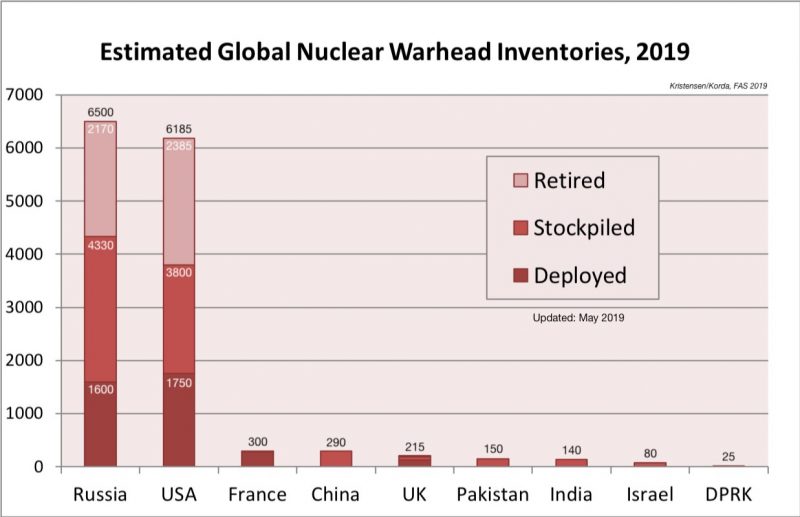
French ambitions
“Everything must go through a Europe which views its strategic and military power in new terms. We have done this through strengthened cooperation, a European Defence Fund, a European Intervention Initiative,” Macron said during his recent speech in Poland.
This obviously speaks to France’s grand ambitions. Will Macron succeed in seizing control of the European nuclear umbrella? The experts’ opinions are divided.
France’s ambitions to ensure the role of nuclear deterrence in the EU’s comprehensive defense policy have previously been frustrated by Germany and the UK, both more connected within NATO and considered to be “on good terms” with the US. These governments have always been cautious about France’s nuclear plans, although David Cameron signed the 2010 Teutates Treaty with Paris, which allowed both countries to cooperate on technology and share experiences. However, experts say that the main goal was still to share the financial burden.
In a new geopolitical environment, France formally remains the only nuclear power in the European Union. At the same time, Paris is currently the only EU country with a permanent seat in the United Nations Security Council.
For its part, Germany is more excited about internal changes (losses of system-aligned parties in the Federal Provinces) and the cooling of relations with the Trump Administration, which also gives more room for Maсron to maneuver. Moreover, last week, Johann Wadephul, senior member of the CDU party in the Bundestag, publicly raised “the question of French nuclear weapons as an element of European deterrence.”
However, not everything looks so bright for France: within the framework of NATO, there are 150 American nuclear weapons stored at Büchel air bases in Germany, Kleine-Brogel in Belgium, Aviano and Gedi-Torre in Italy and Volkel in the Netherlands. That is to say, American presence remains.
Moreover, sceptics suggest that European countries may be dissatisfied with France’s claim of leadership in European security, given the fact that it essentially calls on other countries to increase security costs and does not involve actually sharing nuclear weapons.
Others suggest that after Brexit, France’s nuclear arsenal should be placed under joint command of NATO or the European Union. Paris, of course, refuses– after all, Macron spoke about deepening the common strategic culture in Europe, not giving other countries access to its own arsenal. If access was given to others, Paris would lose its leadership role Europe would certainly not be allowed to simply use the system, as that would de facto destroy its deterrent aspect.
And yet, Macron is still hoping to be the guarantor of European security. The country is currently involved in all major coalitions, from the Levant and to Africa, the President recalled in his speech. As an Indo-Pacific power, France has special ties with Australia, India and Japan, Macron continued. It implements its defense cooperation projects on a daily basis and shows solidarity with its partners in the Arabian-Persian Gulf, the Mediterranean or South-East Asia.
He also recalled the Sahel region, where at least 5,100 French soldiers are deployed as part of Operation Barkhane. Partly at Europe’s expense, Macron wants to solve his own problems, including in Africa: as he noted in his speech, France’s vital interests now have a European dimension
However, as we wrote earlier, France’s position in places like the Sahel is hardly exemplary.
On the eve of a major nuclear conference
The speech was prepared on the eve of the anniversary of the April 1968 Review Conference of the Treaty on the Non-Proliferation of Nuclear Weapons. One of the latest instruments of the non-proliferation regime remains the 2017 Treaty on the Prohibition of Nuclear Weapons, which was agreed upon at the UN General Assembly. The document prohibits all activities related to the acquisition, possession, deployment and use of nuclear weapons. France (like the other 8 “nuclear club” countries) has not signed the treaty– Macron is preparing for criticism by other powers and will try to push through the French agenda in the hope of gaining the support of other Europeans.
According to the Guardian, Macron’s plan will not work because France itself is not ready for it: neither legally, nor in terms of public opinion polls. The president’s promise is disingenuous, according to the publication, and French polls show that they do not want a nuclear race and the possible consequences.
It is not yet clear what this unusual combination of Gaullism and liberal globalism will lead to, or whether the pretentious plan will come to fruition. History tells us that no sane country would voluntarily give up nuclear weapons– the only question is whether or not Macron will agree to support a nuclear deterrence strategy in Europe, and how Washington will respond.


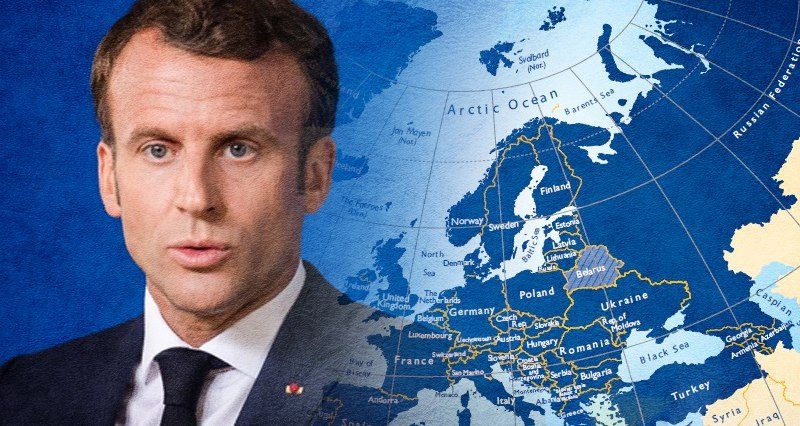

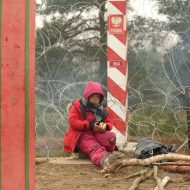
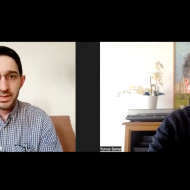



Leave a Reply